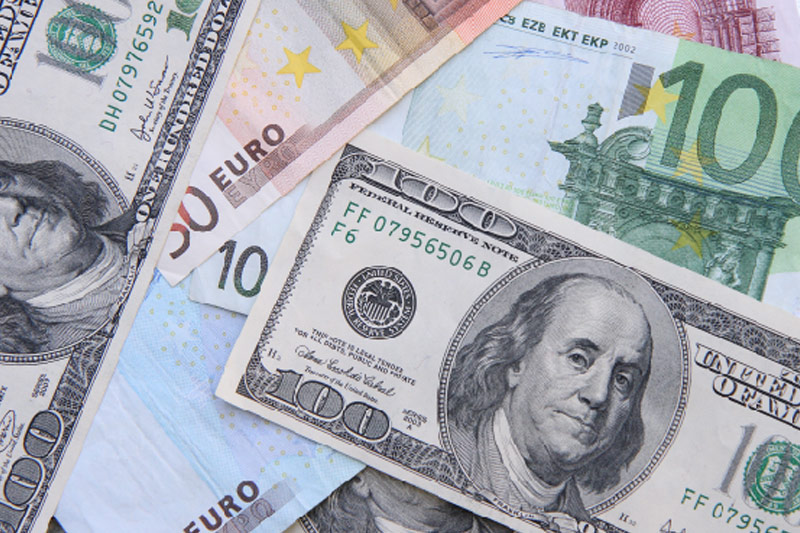Investing.com - The dollar traded higher against most major currencies on Monday after yield differentials between U.S. and European debt widened due to diverging monetary policy paths on both sides of the Atlantic.
In U.S. trading on Monday, EUR/USD was down 0.40% at 1.3589.
The European Central Bank's recent decision to loosen policy coupled with expectations for the Federal Reserve to wind down stimulus programs this year reflected in bond markets on Monday, which weakened the euro and fueled widespread demand for the dollar.
Spain can borrow money more cheaply than the U.S. can, markets revealed earlier, and markets still haven't ruled out further ECB action down the road
The yield on Spain’s 10-year bonds fell to 2.6% on Monday, falling below their U.S. equivalent which was yielding 2.61%. The yield on Ireland’s 10-year bonds fell to a euro-era record low of 2.61% while the yield on German 10-year bonds fell to their lowest against their U.S. counterpart since 2005.
Last Thursday, the ECB unveiled a package of measures to battle persistently low inflation rates in the euro area, including cuts to interest rates, while solid U.S. unemployment data kept expectations firm for the Federal Reserve to wind down its monthly asset-purchasing program this year.
Elsewhere, data on Monday showed that euro zone investor confidence deteriorated unexpectedly in June despite the ECB’s new measures to support growth and inflation.
The Sentix investor confidence index fell to 8.5 this month from 12.8 in May, confounding expectations for a jump to 13.2.
The dollar, meanwhile, continued to see support on solid U.S. unemployment data.
On Friday, the U.S. Labor Department reported that the economy added 217,000 in May, close to expectations for a 218,000 increase, after a 282,000 rise in April, whose figure was revised down from a previously estimated 288,000 gain.
The private sector added 216,000 jobs last month, exceeding expectations for a 210,000 gain, which drew market applause and firmed the dollar.
It was the fourth consecutive month in which the U.S. economy added more than 200,000 new nonfarm payrolls.
The private sector added 216,000 jobs last month, exceeding expectations for a 210,000 gain.
The dollar was up against the yen, with USD/JPY up 0.05% trading at 102.53 and up against the Swiss franc, with USD/CHF up 0.44% at 0.8973.
The greenback was up against the pound, with GBP/USD down 0.04% at 1.6795.
The dollar was down against its cousins in Canada, Australia and New Zealand, with USD/CAD down 0.23% at 1.0908, AUD/USD up 0.20% at 0.9352 and NZD/USD down 0.15% at 0.8487.
The US Dollar Index, which tracks the performance of the greenback versus a basket of six other major currencies, was up 0.29% at 80.68.
